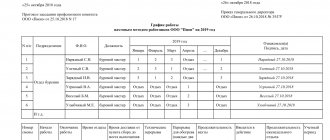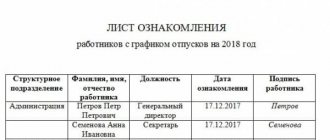Article 29. Employee representatives
Representatives of workers in social partnership are: trade unions and their associations, other trade union organizations provided for by the charters of all-Russian, interregional trade unions, or other representatives elected by workers in cases provided for by this Code.
(as amended by Federal Law No. 90-FZ of June 30, 2006)
The interests of employees when conducting collective negotiations, concluding or amending a collective agreement, monitoring its implementation, as well as when exercising the right to participate in the management of the organization, considering labor disputes between employees and the employer are represented by the primary trade union organization or other representatives elected by employees.
(as amended by Federal Law No. 90-FZ of June 30, 2006)
The interests of workers when conducting collective negotiations, concluding or amending agreements, resolving collective labor disputes regarding the concluding or amending agreements, monitoring their implementation, as well as when forming and carrying out the activities of commissions to regulate social and labor relations are represented by the relevant trade unions and their territorial organizations , associations of trade unions and associations of territorial organizations of trade unions.
(as amended by Federal Law No. 90-FZ of June 30, 2006)
When conducting collective negotiations, concluding and amending collective agreements, as well as agreements, when monitoring their implementation, when exercising the right to participate in the management of the organization, and the consideration of labor disputes, representatives of social partnerships play an important role
. In TC Chapter 4 is dedicated to them.
The employee representatives are:
- trade unions and their associations,
- other professional organizations provided for by the charters of all-Russian, interregional trade unions, or other representatives elected by employees in cases predetermined by the Labor Code.
The interests of the organization's employees in relations with the employer are represented by the primary trade union organization
or
other representatives
elected by employees.
Such representatives must be:
1) elected at a general meeting (conference) of employees, and also elected by secret ballot;
2) are authorized to take appropriate actions to represent the interests of employees.
If the organization has employees who are not members of trade unions
, then they have the right to authorize the body of the primary trade union organization to represent their interests in relations with the employer on issues of individual maintenance and directly related relations on the terms established by this primary trade union organization.
In the absence of a primary trade union organization or in the presence of a trade union organization that unites less than half of the workers
, at a general meeting (conference), employees can instruct this trade union organization or another representative (representative body) to represent their interests.
The presence of another representative should not prevent
the exercise of its powers by the trade union organization.
In all cases, the employer is obliged to create conditions that ensure the activities of employee representatives in accordance with the technical specifications, collective agreement, and agreements (Article 32 of the Labor Code). The interests of workers, going beyond the organization at all levels of the social partnership system, are represented only by the corresponding trade unions, their territorial organizations, associations of trade unions and associations of territorial organizations of trade unions.
Representatives of employers when conducting collective negotiations, concluding or amending a collective agreement are the head of the organization, the employer - an individual entrepreneur (personally) or persons authorized by him, in accordance with the Labor Code, other Federal Laws and other regulations of the Russian Federation, laws and other regulations of constituent entities RF, legal acts of local self-government bodies, constituent documents of legal entities and local legal acts.
At all other levels of social partnership
employers' interests are represented by
employers' associations
.
Article 33 of the Labor Code: an association of employers is a non-profit organization that unites employers on a voluntary basis to represent the interests and protect the rights of its members in relations with trade unions, government bodies and local self-government bodies.
Represent employers
– state and municipal enterprises, as well as organizations financed from the relevant budgets, can be elected executive bodies, local self-government bodies authorized for representation by law or by the employer.
Thus, trade unions play a major role in the employee representation system.
In order to more effectively develop social partnership relations at all levels on an equal basis, by decision of the parties, social partnership bodies such as commissions are formed, which include representatives of the parties with authority.
At the federal level
A permanent
Russian tripartite commission for the regulation of social and labor relations is formed, the activities of which are carried out in accordance with federal law.
Members of the Russian Tripartite Commission for the Regulation of Social and Labor Relations are representatives of all-Russian trade union associations, all-Russian associations of employers, and the Government of the Russian Federation. Tripartite commissions can be formed in the constituent entities of the Russian Federation, their activities are carried out on the basis of the laws of the constituent entities. At the territorial level, tripartite commissions are regulated by the laws of the constituent entities, as well as regulations approved by local self-government bodies. Industry trilateral commissions can be formed at the federal level and at the level of constituent entities, since industry agreements are adopted at the federal and other levels.
At the organizational level, a commission is formed to conduct collective negotiations, prepare a draft collective agreement and conclude it.
Article 30. Representation of the interests of workers by primary trade union organizations
(as amended by Federal Law No. 90-FZ of June 30, 2006)
Primary trade union organizations and their bodies represent in social partnership at the local level the interests of the employees of a given employer who are members of the relevant trade unions, and in the cases and in the manner established by this Code, the interests of all employees of a given employer, regardless of their membership in trade unions during collective bargaining. , concluding or amending a collective agreement, as well as when considering and resolving collective labor disputes between employees and the employer.
Employees who are not members of a trade union may authorize the body of the primary trade union organization to represent their interests in relations with the employer on issues of individual labor relations and relations directly related to them under the conditions established by this primary trade union organization.
Social partnership - cooperation between workers and employers
Social partnership in the labor sphere is the interaction of a team (or groups) of workers and their employer (or group of employers) based on voluntary equal cooperation.
At the lowest (local) level, it corresponds to the relationship between one team and one employer. At higher levels (sectoral, intersectoral, territorial, regional, federal) the parties are represented by groups of labor collectives and groups of employers, and the possibility of involving a third party - a government body - in cooperation is very high for them.
For information on how government agencies participate in the work of the 3-party commission, read the material “Regulations on incentive payments with performance criteria.”
Whatever the level of interaction, the parties do not participate in it in full, but for this purpose form a working body (commission) consisting of an equal number of representatives of each party. The procedures for nominating (appointing) representatives from the workforce and from the employer are fundamentally different. What they have in common is the obligation to have documented authority.
Article 31. Other representatives of employees
(as amended by Federal Law No. 90-FZ of June 30, 2006)
In cases where the employees of a given employer are not united in any primary trade union organizations or none of the existing primary trade union organizations unites more than half of the employees of a given employer and is not authorized, in the manner established by this Code, to represent the interests of all workers in social partnership at the local level, at a general meeting (conference) of employees, another representative (representative body) may be elected from among the employees to exercise these powers by secret ballot.
The presence of another representative cannot be an obstacle to the exercise by primary trade union organizations of their powers.
How does a workers' representative body work?
A representative body of workers is very important for large enterprises, which not only work to increase profits and economic growth of the company, but also take care of their subordinates. At the same time, the organization of such associations requires knowledge in the legislative field, because it is this body that must take part in the drafting of certain regulations of the enterprise.
Every enterprise is interested in the absence of regulatory authorities on its doorstep.
Carrying out various types of inspections, ranging from fire safety to financial statements, involves the possible identification of intentional and unintentional inconsistencies with legal standards.
Internal documents, which are developed by the enterprise independently, in some matters are required to take into account the opinions of employees represented by representative bodies. Provided that such a body exists in the company.
The essence of the representative body
A representative body is often called a trade union, in essence it can be a representative of the workforce or an association of representatives, perhaps from different departments or divisions.
At the legislative level, the activities of trade union organizations, their rights and obligations are regulated by the Federal Law “On Trade Unions, Their Rights and Guarantees of Operations”.
Sometimes the representative body and the trade union are identified, but this is not an entirely correct understanding. Trade unions represent the interests of all workers in the enterprise as a whole, and a representative body is created in the absence of the first or when the trade union does not represent the interests of all workers. In the latter case, the existence of two organs is possible.
At the same time, various articles of the Labor Code spell out norms that take into account the views of the trade union or the representative body, or a choice of both. But these workers' bodies are not interchangeable, despite the fact that trade unions have more powers.
Employees of the enterprise independently decide whether to create such an association or not. If a work collective exercises the right to create a trade union, a certain procedure must be followed.
The first stage is important, which involves organizing a general meeting, at which all employees or most of them must appear, which will be enough for a quorum.
For large enterprises, the presence of a representative of branches or divisions at such a meeting will be sufficient.
It is important that the elected employees attend the meeting in an amount of at least 2/3 of the elected representatives.
At the meeting, a candidate is nominated who will be acceptable to the workforce and will be able to defend their interests before the company’s management. Next, there is a secret election for one of the candidates. After counting, the candidate with the standard 50% + 1 vote wins. The process and its result must be recorded, for which a secretary is pre-elected.
Article 33. Representatives of employers
The interests of the employer when conducting collective negotiations, concluding or amending a collective agreement, as well as when considering and resolving collective labor disputes between employees and the employer are represented by the head of the organization, the employer - an individual entrepreneur (personally) or persons authorized by them in accordance with this Code, other federal laws and other regulatory legal acts of the Russian Federation, laws and other regulatory legal acts of the constituent entities of the Russian Federation, regulatory legal acts of local government bodies, constituent documents of a legal entity (organization) and local regulatory acts.
(Part one as amended by Federal Law No. 90-FZ dated June 30, 2006)
When conducting collective negotiations, concluding or amending agreements, resolving collective labor disputes regarding their conclusion or amending, as well as when forming and carrying out the activities of commissions to regulate social and labor relations, the interests of employers are represented by the relevant associations of employers.
An association of employers is a non-profit organization that unites employers on a voluntary basis to represent the interests and protect the rights of its members in relations with trade unions, state authorities and local governments.
The specifics of the legal status of an employers' association are established by federal law.
Powers of the labor council
The Workers' Council has certain powers delegated to it by the enterprise's employees when holding a general meeting and selecting such a representative body. At the same time, the employees themselves determine the basic list of powers of the council as a whole, but these powers cannot be broader than those directly provided for by the Labor Code and other general legislative standards of the Russian Federation. The basic powers of labor councils include the following rights:
- Representing the interests of individual employees or the entire team as a whole in negotiations with the employer and its representatives.
- Submission of wishes, claims, proposals, comments and other information to the employer for consideration.
- Negotiating the adoption of a collective agreement within the enterprise or making changes to an already existing collective agreement.
As you can understand, the powers of the labor council in the context of ensuring effective protection of workers’ rights and providing them with additional social guarantees are quite small. If desired, the employer has every right to ignore the proposals and demands of the councils of labor collectives, without risking being held accountable. However, in the case of mutual initiative and interest in improving communication and increasing the efficiency of labor activity and social security of workers, the council of the work collective can be an extremely useful body for all participants in the relationship.
Article 34. Other representatives of employers
(as amended by Federal Law No. 90-FZ of June 30, 2006)
Representatives of employers - federal government institutions, state institutions of constituent entities of the Russian Federation, municipal institutions and other organizations financed from the relevant budgets, when conducting collective negotiations, concluding or amending agreements, resolving collective labor disputes regarding the concluding or amending agreements, monitoring the implementation of agreements , the formation of commissions for regulating social and labor relations and the implementation of their activities are also the relevant federal executive authorities, executive authorities of the constituent entities of the Russian Federation, other state bodies, and local government bodies.





